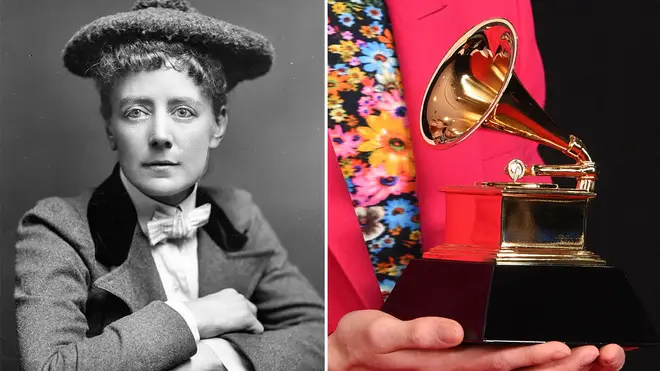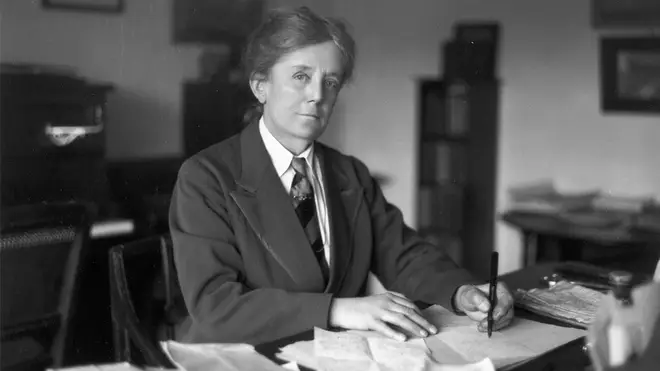On Air Now
Calm Classics with Myleene Klass 10pm - 2am
15 March 2021, 13:01 | Updated: 15 March 2021, 13:14

Three quarters of a century after her death, composer and political activist Ethel Smyth has won her first Grammy.
The trailblazing 20th-century composer, Dame Ethel Smyth, has received her first Grammy win 76 years after her death.
Smyth’s 1930 two-part symphony The Prison, recorded by conductor James Blachly and soloists Sarah Brailey and bass-baritone Dashon Burton, took home the Best Classical Solo Vocal Album category at the 2021 awards ceremony.
This is the first Grammy nomination and win for a composition by Smyth, who struggled her entire career to have her music judged on its merits, rather than on the basis of her gender.
Until this year, the only other historic woman composer to be nominated was Amy Beach. The belated win is among several historical firsts for women at this year’s Awards, as Taylor Swift became the first woman to win album of the year three time, and Beyoncé became the most awarded singer (male or female) and female artist of all time.
Blachly says: “Dame Ethel Smyth’s music has been undervalued for too long, and this Grammy win is the recognition that she has deserved for decades. I’m honoured to have been a part of this recording and project, and 90 years after its premiere, I’m excited for this career-culminating masterpiece to finally be heard throughout the world’s great concert halls.”
Read more: Meet Ethel Smyth, the composer who was also a suffragette >

Ethel Smyth fled home aged 19, landing in Leipzig with dreams of a composing career. Her music was greatly admired by Tchaikovsky, Brahms and Dvořák, and in 1903 she became the first woman to have an opera performed at the New York Met Opera.
But she faced significant discrimination as a female composer throughout her long career, with critics saying her music was “too feminine,” or “too masculine,” or “a remarkable achievement – for a woman.” Brahms, it is reported, approved of her music but did not at first believe it had been written by a woman.
Later in life, Smyth became an active member of England’s Suffragette movement, and even went to prison for throwing a stone through an MP’s window. She also made no secret of her relationships with women, and her gender politics and sexuality were cause for attacks by critics.
Read more: 15 great classical composers who also happened to be gay >
The Prison (listen below) was released in August 2020, to coincide with the 100th anniversary of the 19th Amendment which gave women the right to vote in the United States. The idea of “the prison” has been interpreted as both an actual jail and a metaphorical one for Smyth.

The Prison: No. 1, Close on Freedom. The Prisoner Communes with His Soul
Read more: 21 of the greatest women composers in classical music >
The Prison, out now on Chandos Records, was Smyth’s last work and her only symphony – she was 72 when she completed it in 1930. She stopped composing shortly after, due to advancing deafness.